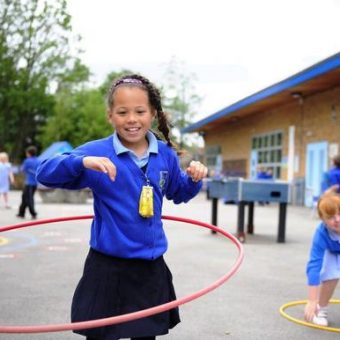Blog
The Inextricable Link Between Good Mental Health and Physical Activity (TES Article June 2019)
If physical activity is a key to good mental health – should we be surprised or is this something we have all known to some extent all along? An interesting article in The TES, 6th June 2019 by Tara Porter discusses just this. You can see the full article here: The Key to Good Mental Health? Physical Activity.
all along? An interesting article in The TES, 6th June 2019 by Tara Porter discusses just this. You can see the full article here: The Key to Good Mental Health? Physical Activity.
The article discusses finding physical activities that pupils love and will always take part in as being one of the most important things that schools can do for mental health.
“When talking about the importance of ensuring mental health provision in schools, how often do we look to the PE department for answers? It may come as a surprise, but I believe that PE teachers can hold responsibility not just for physical health, but for mental health too. There is a growing body of research emerging about the positive impact physical activity has on mental wellbeing. Indeed, we might surmise that finding a sport, exercise or some physical activity that young people will love and take part in for life, might be the singular most important thing a school can do to ensure a young person leads a mentally-well life.” Tara Porter
The article points out that recent research has hinted at the key role in mental wellbeing that physical activity might have. Not only has it been shown to effectively treat up to moderate depression, there is some evidence that exercise and activity might prevent depression in the first place.
The article states that there are several reasons why exercise is so helpful to mental health, and it seems that there are many ways in which it can exert an impact:
- “All physical activity releases the endorphins hormone, which is linked to feelings of pleasure, joy, excitement.
- All physical activity also reduces the stress response of cortisol and adrenaline in the body.
- Sports and team exercises show a very strong impact on mental wellbeing. Some of the benefits of these may be down the impact of socialising and belonging to something, both of which are linked to positive mental health.
- Yoga and walking also showed a similar impact, perhaps due to the positive benefits of being mindful.
- Cycling, gym, and other similar aerobic exercises, although generally more solitary, were also great for mental health: is this the impact of the aerobic function alone? Or do they have a mindful benefit? Or do they improve self-esteem through achieving goals?”
 Jenny Mosley has been extolling the virtues of playground games and activities for many years. The article also links outdoor exercise as having benefits over indoor exercise – and that it can help with social connectedness and having fun which can be important for mental wellbeing.
Jenny Mosley has been extolling the virtues of playground games and activities for many years. The article also links outdoor exercise as having benefits over indoor exercise – and that it can help with social connectedness and having fun which can be important for mental wellbeing.
Jenny’s playground games and Midday Supervisor empowerment can be brought to schools through Jenny’s schools training programmes – either working individually with a school or with groups of schools on shared days. The aim is to empower Midday Supervisors to bring more positive behaviour, fun and constructive activities to lunchtimes and playtimes. The courses have a great track record – phone 01225 767157 or go online to enquire.
Within the classroom, Jenny uses Energisers to wake the class up, to help with transitions and to stimulate the mind, boosts oxygen, bring some fun into the lessons or to cheer the class up. Mood-boosting endorphins are released with fun physical activities.

Website Editor’s Notes
Read the full TES article here: The Key to Good Mental Health? Physical Activity.
Dr Tara Porter is a clinical psychologist at the Royal Free London NHS Trust and Anna Freud National Centre for Children and Families, as well as Tes’ mental health columnist. Views expressed are her own
See Jenny’s Energizer resources.
